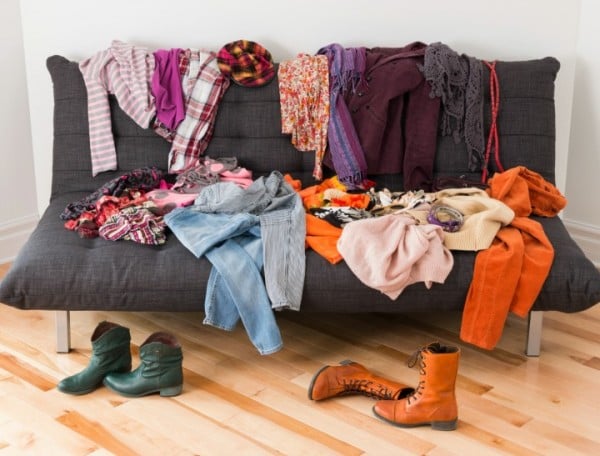
If a house could have a split personality, ours would be all over the place.
For two weeks, all is ordered. It feels calm, like an infomercial for something you spray that smells like a forest full of fresh blooms and issues little sparkles from its nozzle. Surfaces are clean and clear. The dishwasher is stacked and unpacked. We might even get fresh flowers. I feel like I should wear white a lot.
The other two weeks – this two weeks – we descend into chaos. There’s an uneaten sandwich, thankfully still in its ziplocked plastic bag, on the middle bedroom floor. It could lie there for days, slowly turning green, then furry. Oh, I’m lying. It could lie there for a full two weeks if I don’t pick it up.
There will be, most mornings, a single, precariously balanced sheet on the toilet paper roll – if there’s any at all. The front room will closely resemble a rat’s nest, or something Catweazel might emerge from after a period of hibernation.
Cups will sit half-full, topped with a shrunken little moon of congealed milk, on the edge of desks, where they might topple at any moment.
Our washing machine will operate with only the tiniest of loads - perhaps a pair of black skinny jeans, one pair of ridiculously little knickers and a sock. I say 'a sock' because that's how we do socks in our house - in the singular. Somewhere (in a knot in the back of a cupboard, in a school folder half-tucked in a backpack) will be its pair. The cupboard could be at their mum's place. The folder could be too. We'll never really know. But there's a good chance that single sock will never see its twin again.
I'm trying to adjust to this change in circumstances, but I'm very new to this parenting thing. I mean, am I even a parent? Not really; I share a house with my partner's two teenage kids, aged 13 and 16, half the time, and they are with their mum for the remainder. I'm not a friend, not a mother, a bit more than their dad's girlfriend. Beyond that, I'm not quite sure.

